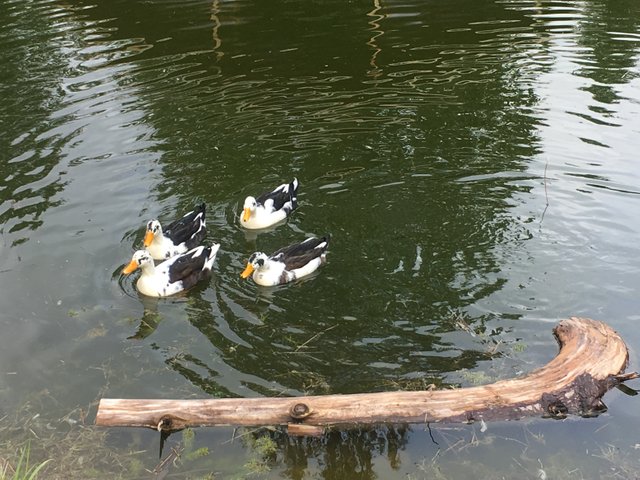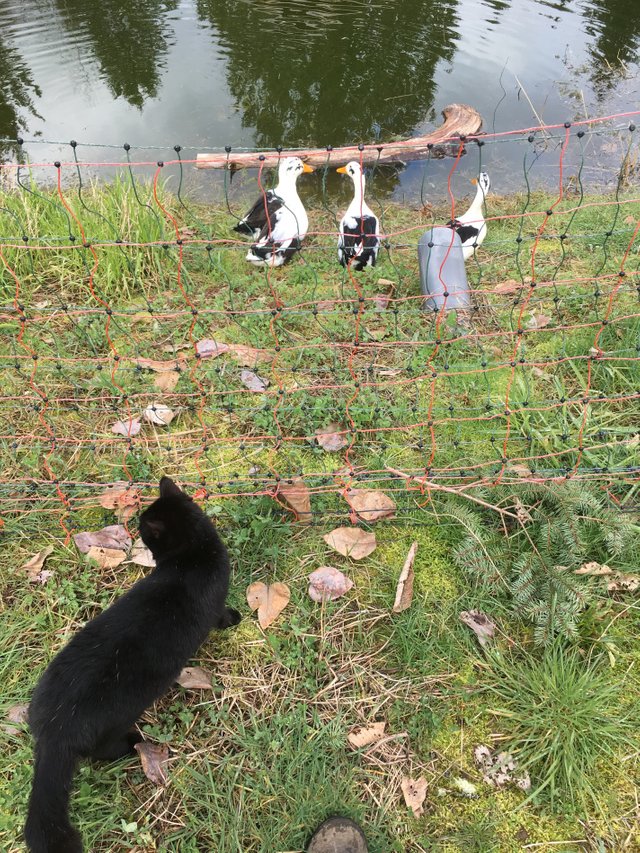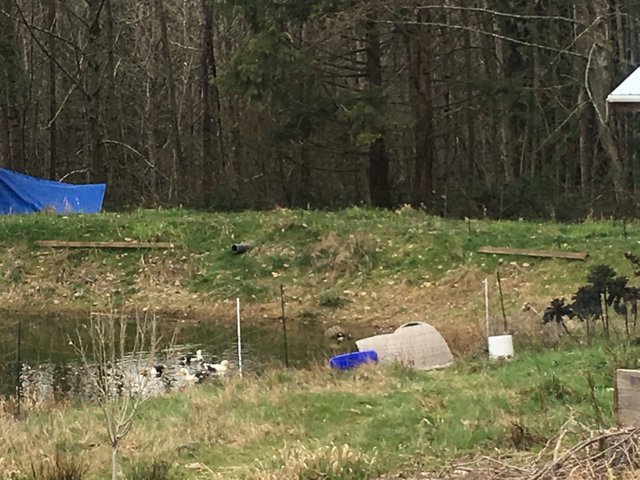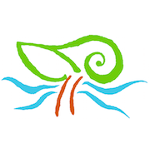ANCONA OR MAGPIE?

So, I was just informed by Alexia of Hawthorn Farm, that my duck are not Magpies, but in fact, Anconas! I then went to task on finding out what separated Magpies from Anconas and found a lot of murky water. It turns out, not much tracking has been done on Magpie genes, but for the expert Ancona breeders, Magpies are just genetic variations of Anconas related ONLY to color. This makes me feel a lot better about calling my birds Magpies, but they are Anconas, and since I’m not clear on the actual genetics of my birds, I’ll stick with the label given by the person who selected and bred mine.
The ducks are enjoying their pond life and also helping to seal the pond. Yes, it’s working! We’re retaining more water this year, and I’ll thank the ducks for their work. Another gift of observation Alexia offered for me was the probable gender of my Anatidae friends. Turns out, you can sex adult ducks by their quack! Since all my ducks are making the same call, there is a solo gender on the water. The low quack these birds are rhythmically calling is a typical male noise. Females in comparison, sound like this. More call comparisons and more great duck/bird info can be found here. If you have not yet used AllAboutBirds.org(Cornell Ornithology Lab), you’ve got to check out this top bird info site.

Lucia looks down at “the boys” as they return to the water after a quick check to see if the feeding person was actually bringing food. I was not, so they promptly returned to the pond for a good swim. More ducks will be coming in late April. The new clutch will be pastured, leaving the pond for our resident hooded mergansers Lophodytes cucullatus, who are back in town again and not shy about showing up.

We’re building a nest box for this wild friend and hoping to court him to Leafhopper Farm with a sweetheart to make more of this North American unique species. The picture above is also a strong reminder of the risk of mixing wild with domestic ducks; a health risk not tolerated by the poultry industry. In Washington State, you are advised to keep domestic fowl away from wild. In future, Leafhopper Farm will not be raising any domestic ducks in our habitat pond. Though it would look nice, the farm built the pond for great blue heron and their fellow wild feathered friends. It will be good to enhance this habitat by sealing the pond and planting shrubs for cover and nesting.
Liz Crain
@leafhopperfarm
To learn more about Leafhopper Farm visit us at:
LeafhopperFarm.com, YouTube, Twitter & Minds

Hey. Wow, what a nice contribution - really enjoyed it. Hope my upvote and resteem will help you. Wish you continuous success here on steem.
🎁* Big Offer get it befoer Run out !🎁
Get $0.10 upvote for 7 days on your every new post you make.
and eveyday random 1 person will get $10 upvote.
We have exclusive cheap plan for everyone. Visit our site to learn more and join the limited time offer at: CLICK HERE TO JOIN AND MORE INFO